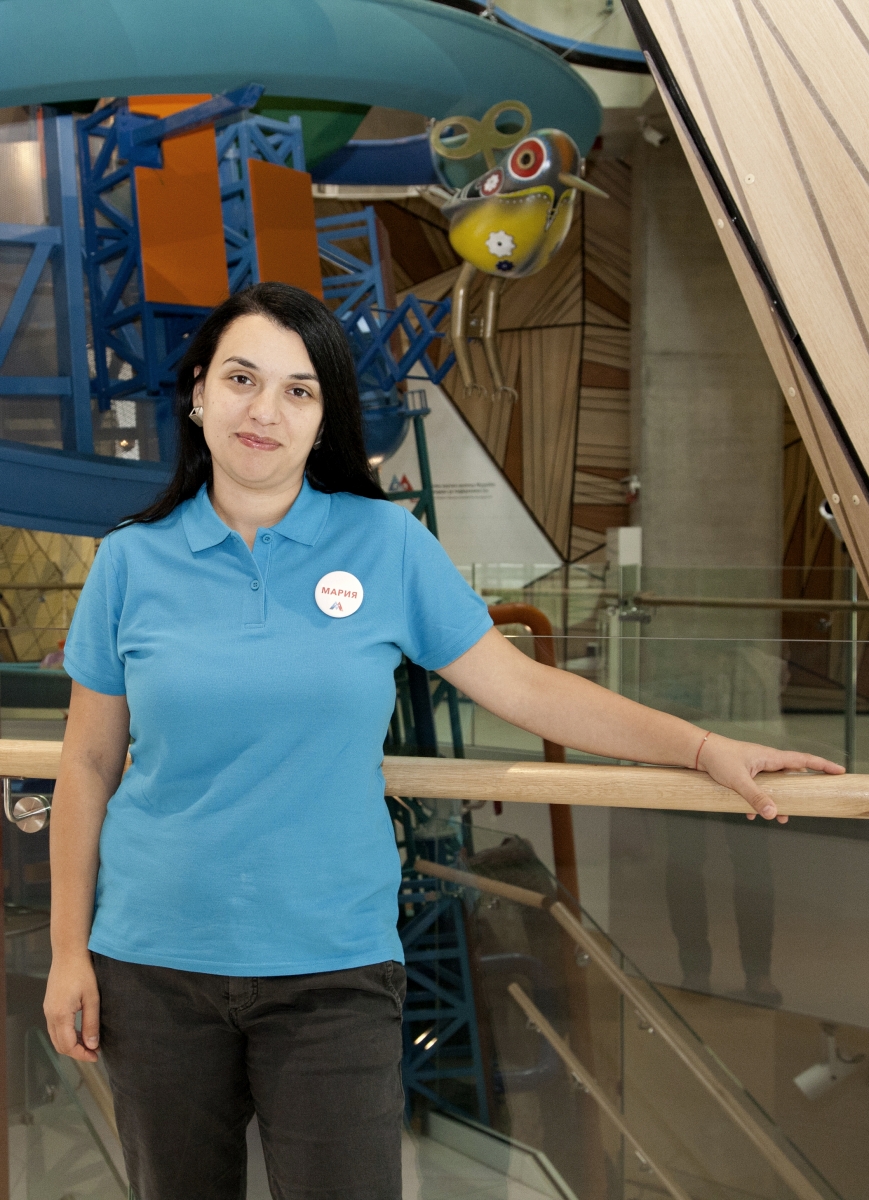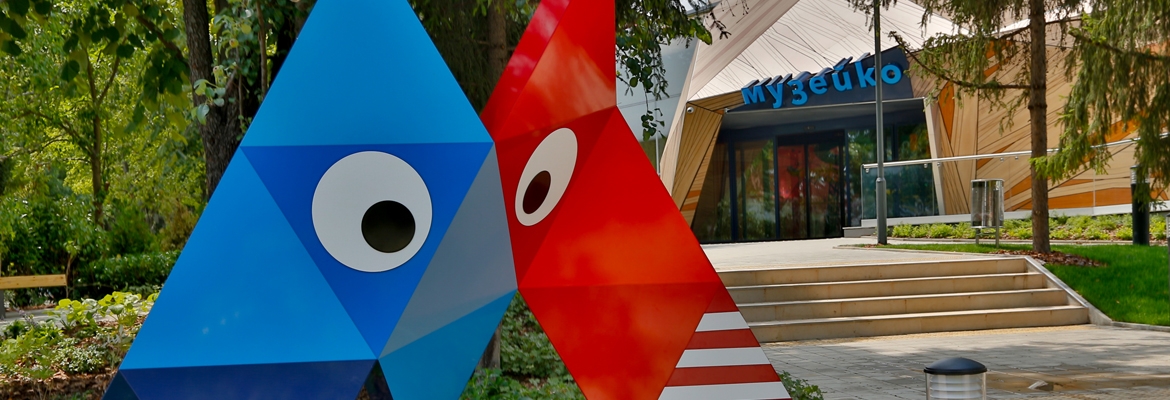Muzeiko is yet another educational organization we regularly collaborate with through our Giving Programme. We are fascinated by their creativity and motivation to inspire children to discover the world through fun games and activities. Their latest project is called Mud Garden – an open area where children can play with natural elements such as wood, water, soil and stones, and we gladly supported the construction of it.
 To tell us more about the project as well as the organization itself, we talked to Maria Kisselova, Business Development Manager at Muzeiko. Here’s what she shared with us:
To tell us more about the project as well as the organization itself, we talked to Maria Kisselova, Business Development Manager at Muzeiko. Here’s what she shared with us:
Tell us more about Muzeiko. What’s the purpose of the organization?
Muzeiko is a 2,000 m2 space with over 130 interactive games created for children and curious adults. The entire content of the museum is designed to inspire children to learn, discover and explore the sciences, while helping them spend time together with their families or educators more actively and effectively.
When and how was the idea conceived? How has Muzeiko changed over the years?
Muzeiko was created on the initiative of the America for Bulgaria Foundation.
Everything in Muzeiko has been thought out down to the last detail – from the specialized architecture, through energy efficiency, to the space for interactive exhibits, each of which piques children’s curiosity about science, engineering, ecology, communication and arts.
All of Muzeiko’s content was developed by leading scientists, educators and designers and is in line with the contemporary trends in education. The exhibits are based on the theory of learning through play and applied activities, multiple intelligences, suggestopedia, and other techniques for accelerated learning and expanding children’s potential.
Muzeiko will take you to different epochs and challenge you to enter the role of a scientist – an archaeologist, geologist, architect or astronaut.
What are your biggest challenges and how do you overcome them?
At the moment the top priority is the health and safety of our employees and visitors. Therefore, our goal is to maintain high level of visitor’s experience.
The ongoing spread of the COVID-19 virus posed serious challenges to education on a global level. In Bulgaria, all formal and non-formal educational organisations were closed down on March 13th.
In this situation, teachers and parents are struggling to sustain children’s motivation, regular educational process and results at a satisfactory level. Teachers are not adequately prepared to implement distance learning models that were introduced with an emergency, as they lack skills and time for developing online content. This overburdens their workload, since they need to create didactic solutions from scratch.
Muzeiko has a proven track record of success in stimulating children’s curiosity by learning through interactive activities and content, and can contribute to addressing these problems by investing in the development of more online resources and educational materials that can be used effectively in virtual settings.
As an organization what’s your biggest achievement so far?
Our team of scientists and educators who inspire children for knowledge by sparking their interest in science, technology and art. They’re doing this for almost 5 years now.
Your latest project is called “Mud Garden”. Tell us more about it? What activities will the children be engaged with and what kind of skills they can acquire there?
Our desire is to encourage the development of children, their sensory perceptions and their knowledge of nature, by playing with natural materials and elements such as soil, water, stones, wood.
The lack of connection with nature and quality time outside is among the frequently cited causes of disorders in mental development, hyperexcitability and hyperactivity. That's why we created a place that allows children to immerse themselves in forest play with soil, water and sand, to wash and sort pebbles by size and to observe the birds from a treehouse!
Here are some of the benefits that educators around the world find in such educational areas:
- Emotional and social development: The zones allow role-playing games such as "builder", "restaurant chef", "mother and father who cook at home", "archaeologist", "explorer of the unknown". By taking on these roles, children develop their social skills and increase their emotional intelligence.
- Language skills: Children are encouraged to talk about what they are doing and to share their excitement about being outside and to engage in free play. They feel more confident in speaking out loud and sharing their thoughts. The roles they enter create a rich language environment in which children can use a specific vocabulary related to the respective role in adult life.
- Physical development: The little ones must be able to grab utensils such as spoons, shovels, lift bowls. They develop motor skills and strength, improve their fine motor skills. Mixing and stirring enhance hand-eye coordination.
- Math: In the Mud Garden children can get used to measuring different amounts of water or sand, counting pebbles and sorting them by type.
- Creativity: Playgrounds of this type are already very common in schools and kindergartens. They are increasingly established as spaces to ignite children's imagination. With a little creativity, plain mud can be turned into a smooth cake batter :)
Any interesting new initiatives you’re planning?
Yes! A traveling interactive exhibition called “Reuse, Reduce, Recycle”.
Stay tuned on our website and Facebook channel for more information!

